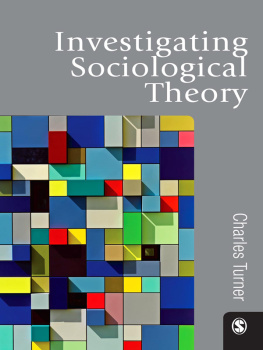Harriet Martineau - Sociological Theory, Values, and Sociocultural Change
Here you can read online Harriet Martineau - Sociological Theory, Values, and Sociocultural Change full text of the book (entire story) in english for free. Download pdf and epub, get meaning, cover and reviews about this ebook. year: 2017, publisher: Routledge, genre: Politics. Description of the work, (preface) as well as reviews are available. Best literature library LitArk.com created for fans of good reading and offers a wide selection of genres:
Romance novel
Science fiction
Adventure
Detective
Science
History
Home and family
Prose
Art
Politics
Computer
Non-fiction
Religion
Business
Children
Humor
Choose a favorite category and find really read worthwhile books. Enjoy immersion in the world of imagination, feel the emotions of the characters or learn something new for yourself, make an fascinating discovery.

- Book:Sociological Theory, Values, and Sociocultural Change
- Author:
- Publisher:Routledge
- Genre:
- Year:2017
- Rating:4 / 5
- Favourites:Add to favourites
- Your mark:
- 80
- 1
- 2
- 3
- 4
- 5
Sociological Theory, Values, and Sociocultural Change: summary, description and annotation
We offer to read an annotation, description, summary or preface (depends on what the author of the book "Sociological Theory, Values, and Sociocultural Change" wrote himself). If you haven't found the necessary information about the book — write in the comments, we will try to find it.
Sociological Theory, Values, and Sociocultural Change — read online for free the complete book (whole text) full work
Below is the text of the book, divided by pages. System saving the place of the last page read, allows you to conveniently read the book "Sociological Theory, Values, and Sociocultural Change" online for free, without having to search again every time where you left off. Put a bookmark, and you can go to the page where you finished reading at any time.
Font size:
Interval:
Bookmark:

VALUES, AND
SOCIOCULTURAL CHANGE

2 Park Square, Milton Park, Abingdon, Oxon 0X14 4RN
711 Third Avenue, New York, NY 10017, USA
Product or corporate names may be trademarks or registered trademarks, and are used only for identification and explanation without intent to infringe.
p. cm.
Originally published in 1963 by The Free Press of Glencoe.
Includes bibliographical references.
ISBN 978-1-4128-5150-3
1. Sorokin, Pitirim Aleksandrovich, 1889-1968. 2. Sociology. I. Sorokin, Pitirim Aleksandrovich, 1889-1968. II. Tiryakian, Edward A.
HM479.S67S63 2013
301-de 23
Font size:
Interval:
Bookmark:
Similar books «Sociological Theory, Values, and Sociocultural Change»
Look at similar books to Sociological Theory, Values, and Sociocultural Change. We have selected literature similar in name and meaning in the hope of providing readers with more options to find new, interesting, not yet read works.
Discussion, reviews of the book Sociological Theory, Values, and Sociocultural Change and just readers' own opinions. Leave your comments, write what you think about the work, its meaning or the main characters. Specify what exactly you liked and what you didn't like, and why you think so.





